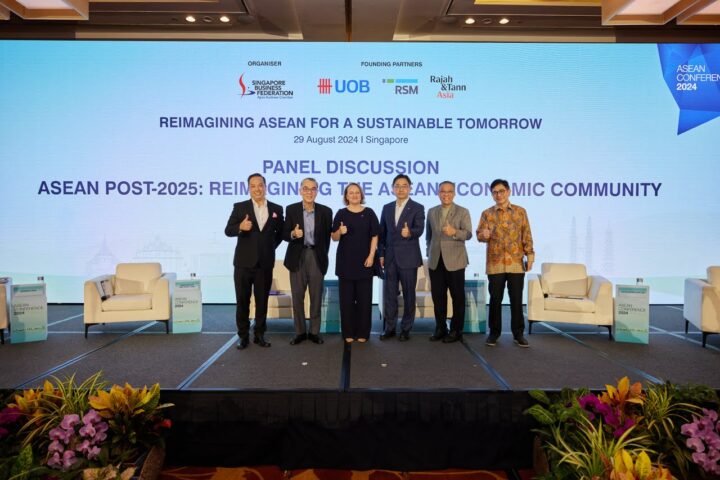
Arsjad Rasjid, Chairman of Kadin Indonesia and Chairman of ASEAN-BAC Indonesia, was a panel speaker at the ASEAN Conference 2024, an annual forum that brings together leaders from Southeast Asia's public and private sectors to find solutions to challenges facing the ASEAN region including discussing the ASEAN Economic Vision Post-2025. This year, the ASEAN Conference was organised by the Singapore Business Federation under the theme ‘Reimagining ASEAN for a Sustainable Tomorrow.’
In a panel titled ‘ASEAN POST-2025: Reimagining the ASEAN Economic Community,’ Arsjad Rasjid emphasised that ASEAN's strength lies in interconnected, complementary and sustainable growth. ‘From a business perspective, I believe ASEAN's most fundamental strength is its growth. For that, this growth must have three main characteristics: connected growth, complementary growth, and continuous growth across ASEAN,’ said Arsjad.
He also underlined that close economic integration among member states is mandatory to maintain ASEAN's strategic position in the global and regional economy. He noted that the Post-2025 ASEAN Vision will face different challenges. ‘We must be prepared to face external geopolitical and geoeconomic challenges that are increasingly pressurising the region,’ he said. Amid strategic initiatives from global partners such as Australia, Japan, China, and the United States, Arsjad emphasised that ASEAN must respond collectively by involving the private sector. ‘ASEAN's growth must be driven by strong regional collaboration with deep engagement and collaboration with the private sector to ensure sustainability,’ he said.
On the occasion, Arsjad explained several initiatives spearheaded by Kadin Indonesia and ASEAN-BAC, including the Borneo Economic Community (BEC). BEC is a sub-regional business collaboration that supports the vision of ASEAN Centrality and ASEAN Digital Community in the Borneo region. This initiative is a strategic momentum to encourage new economic growth in ASEAN, based on good neighbour policy and support economic development in Kalimantan and the Capital of the Archipelago (IKN). ‘BEC is one of the important steps to create stability and prosperity in ASEAN. Through economic projects involving Indonesia, Malaysia, and Brunei Darussalam, the Good Neighbour Policy can be implemented effectively, providing benefits not only for Indonesia but also for the entire ASEAN region,’ he explained.
Arsjad also stressed that Indonesia has targeted economic growth of 8%, focusing on food security, energy transition, digitalisation, and human resource development. ‘This growth can only be achieved through strong regional collaboration, which is not just an option, but a necessity to ensure inclusive and sustainable growth,’ he emphasised.
With a commitment to strengthen economic integration in ASEAN, Indonesia hopes to accelerate its own economic transformation, achieve sustainable growth, and contribute to the prosperity of the region as a whole. ‘Through close cooperation in ASEAN, we can jointly build a more stable and prosperous future for all people in the region,’ Arsjad concluded.
National Economy
Regional Economy